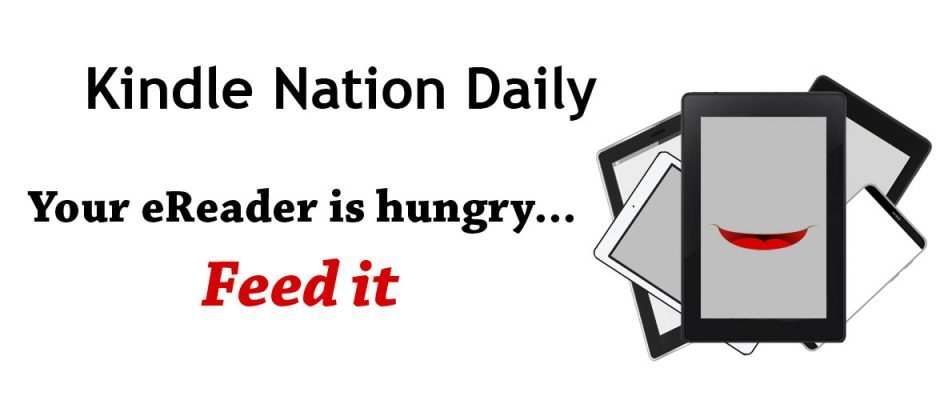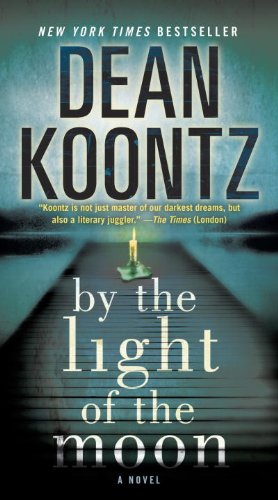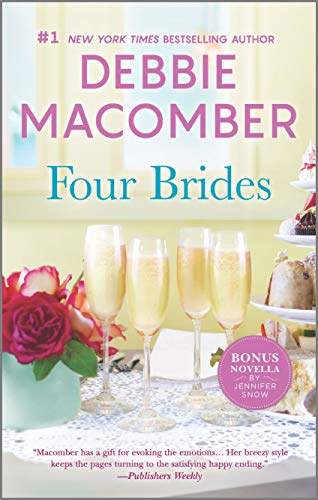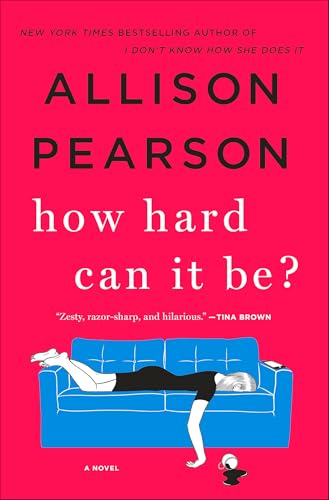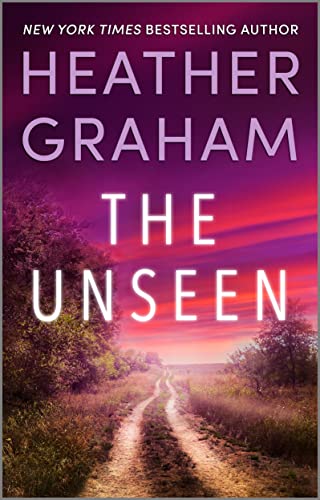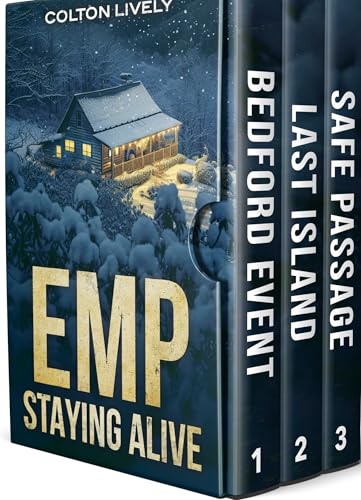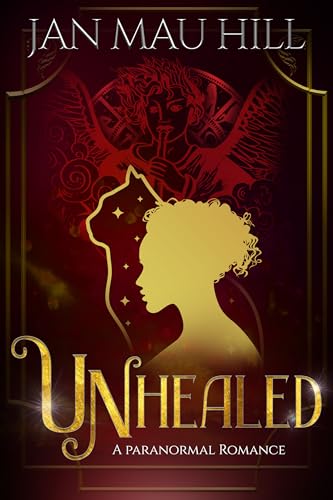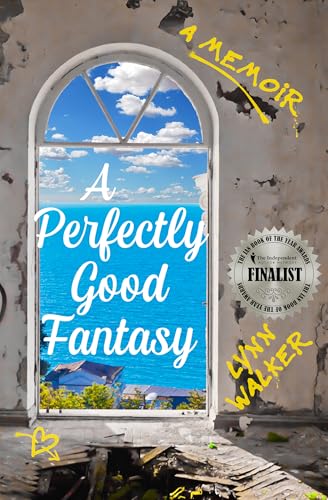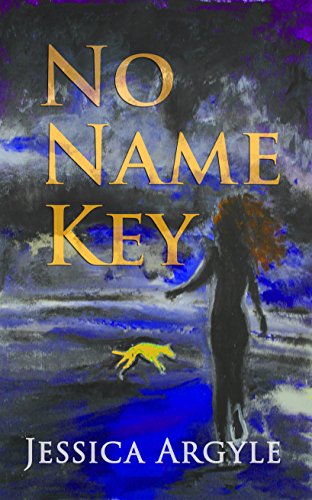And here, for your reading pleasure, is our free excerpt:
Prologue
Nobody guards the dead. Once that occurred to Cody, the plan had come together in no time. Drive to the cemetery, dig her up, sling the coffin into the back of the truck, and disappear into the night. Easy. Apart from one tiny hitch.
‘Man, this ground is like concrete.’
Cody glanced over at his companion, the moonlight splitting his face in two. ‘Quit bitching.’
Usually he liked to work alone. But moving a body was a two-man job. No way round it.
‘I ain’t bitching. I’m making an observation.’
‘Well, observations ain’t gonna get this done.’
‘Neither’s digging. We’re gonna need dynamite to get this old witch out of the ground.’
Don was right. They’d picked the worst time of the year. November on the Eastern Seaboard. A bitter winter with the wind coming off a slate grey Atlantic. Freezing the living, as well as the dead.
Spring would have been better. The nights would still have been long, but the ground would have been softer. Thing was, though, they didn’t have a choice. Not as far as Cody was concerned.
The way he saw it, the clock was ticking. Every day lives were being lost. Hundreds, maybe even thousands. No one really knew for sure. And these deaths weren’t peaceful. Not like the one this woman had experienced: slipping gradually away, the fiery edge of pain dulled by drugs, her loved ones around her to say goodbye.
No, these deaths were torturous and lonely. A final spit in the face to cap a miserable existence.
The anger he felt thinking about it rose up in him. He punched down hard on the lip of the blade with the heel of his right boot, and finally found some purchase. Frosted grass gave way to frozen top soil. He stamped down again. The blade dug in another inch. His breath clouded in the freezing night air as he sucked in oxygen and repeated the process.
A full hour later, Don was the first to hit something solid that wasn’t earth. The two men were exhausted, but the clatter of metal meeting wood spurred them on.
Thirty minutes after that they were loading the remains into the back of the truck. Cody made a show of dusting off his gloves as Don pulled down the rear door of the box truck they’d jacked a few hours earlier from a quiet street in Brooklyn.
Don opened the cab door and started to climb in. Halfway up, he stopped and turned back to Cody. ‘Well, we did it,’ he said.
Cody smirked. ‘Are you for real, brother? That was the easy part.’
1
Ryan Lock peered through the floor-to-ceiling windows which fronted the reception area of the Meditech building. Outside, freezing rain was sweeping down Sixth Avenue in sheets, jamming the dozen or so animal rights protestors into a tight knot on the sidewalk opposite.
‘Who the hell stages a demonstration on Christmas Eve?’ the receptionist asked.
‘You mean apart from turkeys?’ Lock said, hunching his jacket up around his shoulders, pushing through the revolving doors and stepping out into the near-Arctic weather.
Three months as head of security for America’s largest pharmaceutical and biotechnology company had left Lock with little patience for the animal rights people, no matter how earnest their cause.
A fresh gust of wind stung Lock’s face. He pulled up the collar of his jacket and scanned the protestors. Front and centre was Gray Stokes, the protestors’ de facto leader. In his early fifties, with a vegan’s bony frame, Stokes stood with his customary smug expression, a loud hailer in one hand, his other hand resting on the handle of a wheelchair.
In the chair sat Stokes’ daughter Janice, a pretty brunette in her mid-twenties, her left leg rendered useless by a rare form of progressive multiple sclerosis. The placard she held in two red-gloved hands had four words etched on it in thick black capital letters: NOT IN MY NAME.
Lock watched as Stokes raise his loud hailer and began to harangue the half-dozen uniformed cops who were there to ensure good order. Closest to Stokes one of the city’s finest, a portly sergeant by the name of Caffrey, made a show of eating a Big Mac, punctuating each bite with stage-whisper yum-yum noises.
Lock registered Stokes’ reaction with interest.
‘Hey, pig, you ever wonder what goes into those things?’ Stokes yelled at Caffrey. ‘Maybe the ALF left some of Grandma in with the rest of the meat back at Mickey D’s.’
Anyone who had picked up a copy of the New York Post or flicked on to a news channel during the past six weeks would have gotten the reference. The manager of a Times Square fast food joint had found the disinterred body of seventy-two-year-old Eleanor Van Straten, matriarch of the Meditech corporation, on the sidewalk outside his establishment.
The link between Mrs Van Straten’s unscheduled appearance so soon after her funeral and the animal rights movement had been a no-brainer. The next day Lock had been invited to head up the Van Stratens’ close protection team.
Lock watched Caffrey slipping the last of his burger back into its
Styrofoam container, and turned his attention back to Stokes.
‘So how come, if God didn’t want us to eat cows, he made them out of meat?’ Caffrey taunted.
The comeback prompted a few snickers from the other cops, and
Stokes to step out from behind the barrier and off the sidewalk.
‘That’s right, buddy, you keep coming,’ Caffrey yelled. ‘You can cool your heels in Rikers for a few hours. Plenty of animals there for you to hang with.’
Lock watched as Stokes eye-balled Caffrey, calculating his next move. The protestors saw arrest as a badge of honor. Lock saw it as a good way to get the company on the news for all the wrong reasons. Speed-walking towards the barrier, Lock’s right hand dropped to the SIG 9mm tucked into his holster. The gesture didn’t go unnoticed by the protestors. Meekly, Stokes stepped back behind the barrier.
Lock checked his watch again. Zero eight fifty. If he was running to schedule, Nicholas Van Straten, Eleanor’s widower, and the company’s new CEO, would be here shortly. Lock’s hand went up to his collar and he pressed down the talk button of his radio. ‘All mobile units from Lock.’
Lock’s earpiece crackled with static, then cleared.
A moment later, the voice of Lock’s second-in-command, Ty Johnson, came back, calm and in control. ‘Go ahead, Ryan.’
‘You got an ETA for me?’
‘Be with you in about two. What kind of reception we got?’
‘Usual sidewalk static.’
‘Principal wants to come in the front.’
‘I’ll make sure we’re clear.’
Lock crossed back to Caffrey, who’d by this time beat a diplomatic retreat to his cruiser. He tapped on the glass and took a moment to enjoy Caffrey’s irritated expression as he cracked the window and the cold air rushed in.
‘We’re bringing him in the front.’
Caffrey rolled his eyes. ‘Ain’t it bad enough that I have half a dozen officers tied down here every freakin’ morning?’
‘Half a billion bucks and a direct line to the mayor, not to mention the US Constitution, says he can walk in the main entrance of his own office if he so desires,’ Lock said, turning on his heel before Caffrey had a chance to respond.
Caffrey shrugged a big deal to Lock’s back and rolled the window back up as four blocks away three blacked-out GMC Yukons fitted with B-7 grade armor and run-flats muscled their way through the morning gridlock, heavy with menace.
2
Inside the lead Yukon, Ty Johnson checked his weapon, then the position of the other two vehicles in the side mirror. All good.
Ty gave the signal for his driver to move over into the left-hand median and occupy a lane of oncoming traffic, which was momentarily stopped at a light. Blocking the junction allowed the other two SUVs to move up seamlessly on the inside, so Ty’s vehicle was now at the rear and he could have a clear view when the passengers got out.
Ty popped his head out the window and glanced behind. About half a block back, which in this traffic equated to a good twenty seconds, an up-armored, fire engine red Hummer rolled along.
Inside the Hummer was the CA, or counter-attack team, led by Vic Brand, a former colonel in the US Marines. Ty knew that Lock had resisted their appointment. Normally a CA team was the preserve of the military in ultra-high threat environments, and Lock had felt it was overkill. However, Stafford Van Straten, heir apparent to the family empire and perpetual thorn in Lock’s side, had confused a stint in the Reserve Officer Training Corps when he was at Dartmouth with actual security expertise, and insisted on recruiting them, somehow convincing his father they’d be a useful addition to his security detail.
Lock had no time for Stafford; neither did Ty. And they had even less time for Brand, a man who delighted in regaling the younger men in the CA team with his exploits in Iraq, many of which, Lock had told Ty, were fictitious. Ty, having checked with a few of his former Marine buddies, wasn’t so sure.
The close protection world was full of guys like Brand, serial fantasists who confused talking the talk with walking the walk. To Ty, a good bodyguard was like Lock, the archetypal grey man who blended into the background, emerging only when a threat arose.The way Ty saw it, Brand blended like Marilyn Manson at a Jonas Brothers gig.
Lock watched as the protestors on the street were cleared fifty feet further back by the cops. If one of them made a rush, Lock would have Nicholas Van Straten in the boardroom with his decaf latte and a copy of the Wall Street Journal before they made it to the front door. Unconsciously, his right hand dropped to his side, feeling for the handle of his SIG Sauer 226, as the first Yukon stopped at the entrance.
The front passenger door of the rear vehicle opened first. Lock looked on as Ty made his way round to open the front passenger side of the middle Yukon for the designated bodyguard. As the rest of the personal escort section deployed, spreading out so that they had eyes on a full three hundred and sixty degrees, the clamor from the activists rose in volume.
‘Murderer!’
‘Hey, Van Straten, how many animals you plan on killing today?’ The bodyguard, a lean six foot two Mid-westerner by the name of Croft, opened Nicholas Van Straten’s door, and he stepped out. For a man who got death threats the way most people received junk mail, he looked remarkably composed. His four-man personal escort section had already moved into a closed box formation around him, ready to move him into the building. But Van Straten clearly had other ideas.
Taking a right turn behind the Yukon, he began to walk towards the source of the obscenities emanating from across the way. Lock could feel a surge of adrenalin starting to build as Van Straten embarked on this unscheduled walkabout.
‘Where the hell’s Stafford?’ Nicholas Van Straten asked one of his aides, who appeared to be having difficulty keeping pace as his boss made a beeline for the protestors.
‘I’ve no idea, sir.’
‘He was supposed to be here,’ Van Straten said, with an air of disappointment that didn’t stretch as far as surprise. Evidently, he was used to his son letting him down.
Lock watched as Van Straten confronted Stokes at the barrier. Anxiously, he keyed his mike. ‘Where the hell’s he going?’
A second passed before Ty’s response came back. ‘To meet his public?’
The four-man PES stayed tight around Van Straten. Croft glanced over at Lock as if to say, ‘What the hell do I do now?’
Lock could only offer a shrug in return. This didn’t feature anywhere in the playbook, and he didn’t like it.
‘Sir, if you wouldn’t mind . . .’ Croft’s request trailed off.
‘If I wouldn’t mind what?’
Van Straten seemed to be enjoying the panic emanating from the men around him.
A few yards back the red Hummer was drawing up. Lock could see one of Brand’s men in the front seat raising a gun, an M-16, by way of deterrent. Sighing, Lock keyed his radio again, waiting a beat to make sure that the start of his transmission wouldn’t be cut.
‘Brand from Lock. Tell that moron sitting in front of you to put the show stopper away. In case he hadn’t noticed, we’re in Midtown, not Mosul. If I see it again, he’s gonna find it doing double duty as a butt plug.’
Lock breathed a sigh of relief as he saw the M-16 popping back below the dash.
‘What’s your boss doing? Get him inside that freakin’ building before we have a riot on our hands.’ Caffrey had ambled his way across the street and was talking to Lock.
Static in Lock’s ear, then a message from Ty: ‘He wants to talk to them.’
Lock passed it on, and Caffrey’s expression shifted from disgruntlement to apoplexy.
By the time Van Straten had reached the barrier, Stokes was no more than five feet away. Silence descended as the taunting and threats fell away, the demonstrators thrown by the proximity of their chief hate figure. A cameraman from CNN tried to elbow his way in front of Lock.
‘If you wouldn’t mind stepping back please, sir,’ said Lock, trying to keep his voice even.
‘Who the heck are you to tell me what do to?’
Lock raised his hands, palms open in placation. ‘Sir, I’d really appreciate you moving back,’ he added, simultaneously raking the inside of his right boot all the way down the guy’s shin.
As the camera operator hobbled a retreat, cursing under his breath, Lock turned to watch Van Straten confront Stokes at the barrier.
‘I thought a delegation from your group might like to meet with me this morning,’ Van Straten was saying.
Stokes smiled. ‘You got my message, huh?’
By now, the media had begun to cluster round. A blonde reporter, Carrie Delaney, was first to be heard above the rapid-fire burst of questions. ‘Mr Van Straten, what do you plan on discussing inside?’
Lock caught her eye for a split-second. She made a point of looking away.
A preppy-looking correspondent, with frat boy features and a footballer’s physique, broke in before Van Straten had a chance to answer. ‘Is this a sign that you’re giving in to the extremists?’
Carrie shot the guy a look. Asshole. Lock noticed the guy smiling back. Right back at ya, babe.
Van Straten held up his hands. ‘Ladies and gentlemen, I’ll be happy to answer any questions you have after my meeting with Mr Stokes.’
More bodies pressed in. A man behind Lock was pushed forward by a surge of the growing crowd. Lock pushed him back.
Lock glanced around. It looked like every single assassination attempt ever witnessed, five seconds before it went off. A chaotic scrum of bodies, security caught flatfooted, then, from nowhere, someone making their move.
3
Van Straten’s bodyguard, Croft, was stationed at the door which led into the boardroom when Lock stepped out of the elevator.
‘Who’s inside?’
‘Just the old man and Stokes.’
‘You check on them?’
Croft shook his head. ‘The old man didn’t want to be disturbed. Don’t worry, I made sure he sat at the top of the table before I left.’ Lock relaxed a touch. There was a panic button fitted directly under that section. Not that he thought even Stokes would be dumb enough to try something here.
‘Any idea why the boss wanted a sit-down?’ Croft shrugged. ‘Nada.’
‘He didn’t say anything in the car this morning?’
‘Not a word. Just sat in back going through his papers, same as always.’
To be fair to Croft, Lock had found Nicholas Van Straten a tough man to read. Not that he was taciturn or impolite. Far from it, in fact. In contrast to his son, Nicholas Van Straten always seemed to make a point of being overly polite to those who worked for him, sometimes in almost inverse proportion to their seniority in the company.
‘So no one knows what this is about?’ Croft shook his head.
Lock turned to walk back to the elevator as the door to the boardroom opened and Van Straten stepped out.
‘Ah, Ryan, just the man,’ Van Straten said, turning his attention to Lock.
‘Sir?’
‘First of all, I owe you and the rest of your men an apology. I
should have given you some warning of my plans.’
Lock bit back his irritation. ‘That’s quite alright, sir.’
‘It was something of a last-minute decision to open direct discussions with Mr Stokes and his group.’
‘Yes, sir.’
‘Now, in ten minutes or so Mr Stokes and I will be going back outside to make a joint announcement.’
‘Sir, if I might make a suggestion.’
‘Of course. Please do.’
‘Perhaps if we found somewhere inside the building where you could—’
Van Straten cut him off. ‘Already thought of that, but Missy thought it would be more visual to be out on the steps. Oh, and could you arrange for some coffee to be sent in? No milk. Mr Stokes doesn’t take milk. Something to do with cows finding the process emotionally unsettling.’
‘Right away, sir.’
Van Straten stepped back inside and closed the door, leaving
Lock alone with Croft.
‘Who the hell’s Missy?’ Lock asked.
‘Some gal in the public relations office. The old man put a call in to her about two minutes before you got here.’
‘Terrific,’ Lock said, trying hard to keep the exasperation from his voice. Now security strategy was being dictated by someone who probably thought an IED was a form of contraception.
‘Dude, relax,’ Croft said. ‘Looks like the war’s over.’
Lock stepped in close to Croft. ‘Dude, don’t ever use language like that in my presence again.’
Croft was puzzled. ‘What? I didn’t cuss.’
‘In my book, “relax” beats out any cuss word.’
Back outside, word of the sit-down between Gray Stokes and Nicholas Van Straten had got out, drawing even more news crews to the scene. Bystanders and protestors filled the gaps, pilot fish waiting to snatch at whatever morsels of information might float their way.
Lock finished briefing his team stationed on the steps just as Gray Stokes emerged from the entrance, his clenched fist raised in imitation of the black power salute. Next to him, Nicholas Van Straten stared at his feet. A chastened Croft stayed within touching distance of his principal.
‘We did it!’ yelled Stokes, his voice sounding hoarse in the chill air. ‘We’ve won!’
Two protestors whooped as the pack of reporters surged forward. Lock noticed that Croft and Ty, who were flanking Van Straten, were looking nervous as the reporters pushed up against them, jockeying with one another for position.
Lock stepped between Janice in the wheelchair and a reporter squeezing in next to her, worried that she’d be toppled over by the crush of bodies. ‘Folks, if you could give everyone here some space,’ he shouted.
Knowing what Lock had done to the cameraman, those nearest to him hastily made some room.
Van Straten cleared his throat. ‘I’d like to make a short statement if I may. As of midnight tonight, Meditech and all its subsidiaries, alongside those companies we work with in partnership, will no longer engage in testing on animals. There will be a fuller statement released to all media outlets later.’
Before Stokes had the chance to have his say, a volley of questions came at Van Straten. Even in victory, Van Straten was stealing his thunder, and Stokes didn’t seem to be enjoying it one bit. He shifted from foot to foot. ‘I have a statement as well!’ he shouted. But the reporters ignored him, continuing to throw questions at Van Straten.
What’s behind your change in policy, Mr Van Straten?’
‘Have the extremists who desecrated your mother’s memory won here?’
Another question, this one more pertinent to a broad section of the audience at home: ‘What do you think this will do to your company’s share price?’
Van Straten stretched out his arms. ‘Ladies and gentlemen, please. I think it would be rude if you didn’t at least listen to what Mr Stokes has to say on the matter.’
Struggling to keep his cool, Stokes took a single step to the right. Now he was standing directly in front of the Meditech CEO. Now it was his face filling the screens directly behind him, and the millions more around the country.
He raised a bunched right hand to his mouth, theatrically cleared his throat, and waited for silence to descend.
‘Today has been a momentous one for the animal rights movement,’ he began.
But before he could finish the sentence, his neck snapped back. A single .50 calibre bullet had vaporized his head.
4
Lock placed himself in front of Croft and drew his weapon, giving Croft time to spin and sling Van Straten so they were back to back. With his left hand, Croft clasped the collar of Van Straten’s shirt, which allowed him to return fire with his right, all the while backing up as fast as he could. Lock remained steadfast among the scrum of bodies as between them Ty and Croft moved Van Straten back inside the building.
Lock looked around for Brand and the rest of the CA team but they were nowhere to be seen. Backing up, he shouted over to Ty,
‘Get him upstairs!’
In front of him, people were scattering in all directions, the crowd parting in a V directly in front of the building as another round was fired, this one catching a male protestor in the chest. He fell, face first, and didn’t move.
A breath of relief for Lock, as out of the corner of his eye he saw the journalist Carrie Delaney hightailing it for a news van parked on the corner.
Turning to his right, Lock saw Janice Stokes sitting in her wheelchair, her mother struggling to get it to move. At the same time, he saw an additional reason for the collective panic.
A red Hummer was careering towards the front of the building at full tilt, its trajectory an unswerving diagonal towards the one person incapable of getting out of its way. Even if the brakes were applied at that instant, the vehicle’s momentum would carry it onwards for at least another two hundred feet. Janice was well within that range.
Lock sprinted forward, his left foot slipping under him as he struggled for traction on the icy steps. Another round flew in, taking out what was left of the glass frontage. Desperately, he tackled Janice from the chair, his momentum carrying them both skidding across the polished stone.
Behind them, the Hummer had started to brake, the wheels locking, its sheer weight carrying it inexorably towards the front of the building and up the steps. Janice’s mother stood motionless as it rolled across Stoke’s body and slammed into her. She flipped into the air, a spinning tangle of limbs, and landed with a thud between the Hummer’s front wheels.
Janice opened her mouth to scream as the Hummer ploughed into the reception area. ‘Mom!’ she yelled, as Lock pulled her under him, his body covering hers.
He twisted his head round to see one of the Hummer’s doors open and Brand emerge. Brand hefted the M-16 in his right hand. He looked around at the devastation wrought by the vehicle and strolled calmly towards Lock, glass crunching under his boots, rifle raised.
Lock rolled away from Janice as a paramedic ran over to them and knelt down next to Janice. The CA team clambered one by one from the Hummer and took up position in the lobby, guns drawn.
Brand reached Lock. ‘I’ll take it from here, buddy.’
Lock felt a surge of anger manifest as bile at the back of his throat. A young woman had just seen her father’s head blown clean off and her mother run over by Brand.
Brand smirked. ‘Relax, Lock, she was a freakin’ tree hugger.’ Lock drew back his right arm and stepped forward. Before
Brand had a chance to duck Lock’s right elbow connected squarely with the side of Brand’s mouth. There was a satisfying crunch as Brand’s head jolted back and blood spurted from the side of his mouth.
‘She was a human being,’ said Lock, hurrying past.
5
Suddenly aware of his labored breath, Lock took cover behind a Crown Vic parked fifty feet from the front of the building, making sure to stay a good five feet behind the bodywork so that any fragments of shrapnel zipping off were less likely to find him. Getting too close was called hugging cover. Hugging cover got you killed.
Only ninety seconds had passed between Stokes being hit and him making it here. In a one-sided contact like this, it felt like an eternity.
What was it his father had told him as a ten-year-old when explaining the job of a bodyguard? Hours of boredom, moments of terror.
He glanced over to see Sergeant Caffrey squatting next to him, tight to the cruiser. Lock grabbed him by the shoulder and pulled him back a few feet.
‘What the hell are you doing?’
‘You’re too close.’
‘What do you mean?’
‘You want a lecture on appropriate use of cover right now? Just do what I tell you, and stay the hell there.’
Caffrey grimaced, his pasty complexion hued red by a freezing wind and sudden exertion. ‘Man, I’d be working the Bronx if I’d wanted to sign up for this kind of shit.’
‘I think they’re up there,’ Lock said, nodding towards a three story redbrick with a ground-floor Korean deli which squatted among its more refined office block neighbors
‘They? How’d you know there’s more than one of them?’ Caffrey asked, peeking out.
Lock hauled him back in. ‘A lone sniper is either a college kid gone wild who can’t shoot for shit, or someone in the movies. A professional works with a spotter. And these guys are professionals.’
‘You saw them?’ Caffrey asked.
Lock shook his head. ‘Take my word for it. It’s about the only place they can be. The angle of the first shot would have given him the right elevation to take out Stokes above the crowd.’
Lock keyed his radio. ‘Ty?’
‘Go ahead.’
‘Where’s Van Straten?’
‘Tucked up with milk and cookies. What’s the count?’
‘Three down.’
A middle-aged man in a suit broke cover to Lock’s left. Clutching his briefcase, he ducked out from behind a parked car, only making it a few feet before being blown off his feet by the sniper.
‘Correction. Four.’
Automatic rounds chattered from inside the lobby as Brand and his CA team returned fire.
‘OK, so, Ty. You leave Croft with Van Straten and get downstairs. Make sure Brand and the rest of his buddies don’t light up any more of the citizenry.’
‘Will do.’
Lock turned back to Caffrey. ‘What’s the SWAT team’s ETA?’
‘They’ll be here in five. Let’s just sit tight until then.’
‘When they get here, make sure you tell them that I’m on your side.’
‘Where the hell are you going?’
‘To give these assholes the good news,’ said Lock, making for the nearest doorway.
He tucked in tight to the entrance of the building directly opposite Meditech headquarters. Now he was on the same side of the street as the shooters he could inch his way up, building by building, all the while narrowing any possible angle. His only real fear was being taken out by friendly fire from Brand’s trigger-happy cohort.
The sign on the door of the deli had been switched to ‘Closed For Business’. This store didn’t even close for Thanksgiving. Lock now knew for definite that he was in the right place. He tried the handle. It was locked. With the butt of the SIG, he punched out the glass-paneled door and stepped through.
Inside, there was no sign of life. The relative calm was unsettling as sirens whooped and screamed in the street beyond. He walked slowly towards the counter, the fingers of his right hand wrapped around the SIG’s grip, his left hand cupping the bottom.
Behind the counter there was a young woman crouched beneath the register, her hands cuffed with plastic ties, her mouth sealed with gaffer tape. The space was narrow: these places tried to use every available inch for product. As he knelt down, his hand brushed her shoulder, making her jump.
‘It’s fine, you’re gonna be fine,’ he whispered.
He found the edge of the tape with the nail of his thumb.
‘This is going to hurt a little but, please, try not to scream, OK?’ She nodded, her pupils still dilated in terror.
‘I’m gonna pull it off real fast, just like a Band-Aid. One, two, three . . .’
He tore the tape up and right, a yelp half catching in the woman’s throat.
‘My dad’s through there,’ she said, her words coming in short gasps. She nodded towards the corridor, which snaked off from the front of the store to the back. ‘He has a heart condition.’
‘Who else is here?
‘Two men. Upstairs.’
‘You sure?’
‘Yes. They haven’t come down yet.’
‘Where are the stairs?’
She jerked her head back down the corridor towards a brown wood-paneled door.
Lock reached for his Gerber, flipping out the knife into a locked position with a single motion. The woman winced.
‘I’m going to free your hands.’
She seemed to understand, but her body remained tense and stiff as he reached behind her to cut through the plasti-cuffs. At first he thought whoever tied her up must have improvised using some plastic ties they’d found lying around, but now he saw these were the real deal. Military issue of the kind used in places like Iraq where you might have to detain large numbers for a short period. Still, the thin edge of the Gerber’s blade made fast work of cutting through the thick white plastic band.
‘You take care of your father. If you hear shots, get out, but stay on this side of the street.’
Lock stood up and made his way to the door leading to the stairs. He opened it, stepped through, and glanced up. Dust caught at the back of his throat as he moved up the stairs, careful to keep his weight even on each tread. He focused on slowing his breathing as his field of vision, which had unconsciously tunneled, started to clear again. By the time he reached the second floor his heart rate had dropped by twenty beats a minute.
Footsteps thumped above him. Whoever it was, they were in a hurry. He crouched down, his back to the wall, his 226 aimed at a gap between the iron spindles of the railing on the third floor.
There was a sudden movement as someone broke cover above him, the person a blur. Before Lock could get him in his sights, he was gone.
Slowly, he began to edge his way up the final flight of stairs, the SIG out in front of him, index finger resting lightly on the trigger. At the top of the stairs there was a single door, offset six feet to the left. To the right, another door, this one ajar.
He went right first, down the corridor, pushing the door open with the toe of his boot. The room smelt musty and damp. Inside was a desk. Next to that was a solitary filing cabinet. The window was open. It faced on to the back alley. A metal pin was hammered into the frame; a length of blue climbing rope looped through it snaked out into thin air. Lock crossed to it and leaned out, glimpsing what he suspected were the backs of the sniper team as they ran.
He keyed his radio. ‘Ty?’ he whispered.
‘I’m here.’
‘Korean deli half a block down. Second floor.’
‘OK, man, I’ll pass it on.’
With any luck the SWAT team could throw up a four-block perimeter and find them before they had the chance to slip away. New York might provide the ultimate urban camouflage environment for crazies, but even here a heavily perspiring assassin carrying the tools of his trade just might stand out.
Lock walked back down the corridor, stopping at the closed door he’d seen. He took a single step back and lifted his right leg. The door flew open under the impact of his boot.
There was a deafening boom as a shotgun, rigged to the door handle with a length of fishing line, went off. The force of the impact blew Lock back over the railing. He landed heavily on his back, his head smacking off the wall, leaving a dent in the plasterboard. Then everything went black.
6
A cluster of town cars skulked outside the up-scale apartment block. Engines running, they chugged out a mini smog bank that rolled across the FDR Driveway to the very edge of the East River.
Next to the green-canopied entrance, Natalya Verovsky sheltered under a golf umbrella embossed with a Four Seasons logo. Standing apart from the other au pairs and nannies waiting to collect their charges from the Christmas Eve party, she glanced at her watch. They should be coming out any minute now.
After what seemed an eternity, a gaggle of excited children began to emerge clutching bags of party favors. Last, as usual, was Josh, a loose-limbed seven-year-old with a mop of brown hair. He appeared to be engaged in a comically earnest conversation about the existence of Santa Claus with one of his friends.
Spotting Natalya, Josh broke off mid-conversation with a fleeting ‘Gotta go’ and made a dash towards her.
Normally this was the signal for Natalya to sweep Josh up in a big hug, lifting him off his feet and matching the embrace with a sloppy kiss, which Josh pretended to think was gross, but which she knew he secretly relished. Today, however, she took his hand without a word, even though she knew he disliked having his hand taken more than being kissed.
‘Hey, I’m not a baby,’ he protested.
Natalya said nothing, prompting Josh to look up at her, this faintest of blips on his radar registering immediately. ‘What’s up, Naty?’
Natalya’s voice sharpened. ‘Nothing. Now come on.’ She hurried him towards a town car parked across the street.
As the back door swung open, Josh held back. ‘Why aren’t we walking?’
‘It’s too cold to walk.’
A lie. It was cold. Freezing in fact. But they’d walked home in colder.
‘But I like the cold.’
Natalya’s grip tightened around Josh’s hand. ‘Quick, quick.’
‘Can we have hot chocolate when we get home?’
‘Of course.’ Another lie.
Josh smiled, a victory seemingly won. Natalya knew that his dad hated him having anything sweet before dinner and generally she sided with him, only allowing Josh to sneak some candy as a special treat on Friday afternoons when he’d finished all his homework.
He climbed into the back of the town car. ‘With marshmallows?’
‘Sure,’ said Natalya.
Inside the car, the driver, his face obscured by the partition, pressed down on the horn with the palm of his hand before easing the Mercedes out into traffic. At the end of the block, he made an immediate right down 84th towards 1st Avenue.
Natalya stared straight ahead.
Josh looked at her, his face a pastiche of adult concern. ‘There’s something wrong, isn’t there?’
A dull clunk as the doors either side of them locked. Natalya could see the beginnings of panic in Josh’s eyes now. ‘It’s just so you don’t fall out.’ A third lie.
‘But I’m not going to fall out.’
The lights ahead flipped to green. Natalya reached over to secure Josh’s seatbelt as the car lurched forward to beat the next set of signals. The park was on their right now, the trees barren and stripped of their leaves. They passed a lone jogger, his face set as he leaned into the biting wind.
At 97th, they turned into Central Park, cutting across towards the Upper West Side. By now any pretense that they were heading home was gone.
Josh unclipped his seatbelt and scrambled up on to the seat to stare out of the back window. ‘This isn’t the way,’ he protested, his voice pitching high with concern. ‘Where are we going?’
Natalya did her best to shush him. ‘It’s only for a little while.’
This part, she’d been promised, was true.
‘What’s only for a little while? Where are we going?’ He paused and took a shaky breath. ‘If we don’t go home right now, I’m telling Dad, and he’ll fire your ass.’
The partition window slid down and the driver swiveled round. His hair was cut military-short and flaked with grey at the temples. The black suit he’d been crammed into, to lend the appearance of a chauffeur, looked in danger of tearing under his arms.
‘Take us home!’ Josh screamed at him. ‘Now!’
The driver ignored him. ‘Either you get the little brat to sit down or I will,’ he said to Natalya, pulling aside his jacket to reveal a shoulder holster with a Glock 9mm pistol tucked into it, the handle showing black against his white shirt.
Josh stared at him, the sight of the gun quietening him, boiling down panic to a silent rage.
Beyond the driver, through the clear glass of the windshield, he could see a trademark blue and white NYPD cruiser driving towards them. In a few seconds it would be parallel with them. A
second after that it would be gone.
Sensing that this was his one chance, Josh made a sudden lunge towards the front seat. The driver’s right elbow flew up, catching the top of his forehead with a crack and sending him spinning back into the footwell. ‘Sit the hell down,’ he said, pushing a button on the console, the partition gliding back into place.
Natalya pulled Josh back up on to the seat. A welt was already starting to rise where the driver had caught him. An inch or two lower and he would have crushed the bridge of his nose. Fighting the tears was futile.
His eyes burned into Natalya’s. ‘Why are you doing this?’
As Josh’s sobs came, raw and breathless, Natalya closed her eyes, the knot of quiet dread that had been growing in her stomach for the past few weeks solidifying. Knowing now what she’d denied to herself all this time. That she’d made a terrible mistake.
Feet away from them, the police cruiser sped past. Neither cop gave the town car a second glance.
7
Ten minutes after the driver had struck Josh, the partition lowered again and he tossed a backpack in Natalya’s general direction. She opened it with trepidation, even though she’d been told what would be inside.
First item out was a plastic bag emblazoned with a trademark Duane Read blue and red logo. Digging a bit deeper, she retrieved a set of children’s clothes, brand new and in Josh’s size: blue jeans, a white T-shirt and a navy sweatshirt. No cartoon characters, no brand names, no slogans, no distinguishing characteristics of any kind. Plain. Generic. Anonymous. Chosen precisely for those qualities.
‘Look, new clothes,’ Natalya said, doing her best to coax Josh from the far corner of the back seat.
Josh turned his face to Natalya, half-dried tears like glycerine on his cheeks. ‘They suck.’
‘Let’s get you changed, yes?’
‘Why? What for?’
‘Please, Josh.’
Josh glanced towards the partition. ‘Forget it.’
Natalya leaned in closer to him. ‘We don’t want to make him angry again, do we?’
‘Who is he anyway?’ Josh asked. ‘Your boyfriend?’ Natalya bit down on her lip.
‘He is, isn’t he?’
‘It doesn’t matter who he is.’
‘Why are you doing this to me?’
Natalya lowered her voice. ‘Look, I made a mistake. I’m going to try and get you out of this. But right now, I need you to cooperate.’
‘Why should I believe you?’
‘Because you don’t have any choice.’
Finally, after more stalling, Josh got changed. Natalya jammed his party clothes into the backpack, the easy part out of the way. Next, she picked up the bag from the drug store, steeling herself, then put it back down. Unless she was going to pin Josh to the ground to do what she had to do, and risk injuring him in the process, this was going to take careful handling.
‘You look nice in those,’ Natalya said.
‘No I don’t.’
‘They look good.’
None of this was cutting any ice and Natalya could see that Josh was getting jittery again.
He shifted position on the back seat. ‘Can we go home? Please? If you want money my dad can give it to you, but I want to go home.’
‘It’s not that simple.’
‘Why not?’
Natalya pulled a pair of hairdresser’s scissors from the drug store bag.
Josh’s hand shot to his scalp. ‘No. Not my hair.’
The car slowed and pulled to the side of the road, as a car behind blared its horn. The partition fell. This time the driver had the gun in his hand. He pointed it directly at Josh. ‘If I have to pull over one more time, you’ll regret it.’
Shaking, Josh turned his back to Natalya. Legs crossed, she sat behind him, and set to work.
Barely five minutes later the back seat was festooned with long strands of dark brown hair. Josh reached his hand back, ran it through the uneven spikes.
Natalya took Josh’s hand and squeezed it. ‘You can always grow it back. Now, let me tidy it.’
She made some more tiny adjustments, momentarily getting caught up in the task.
‘There. Now you know what would really suit this style?’
‘What?’
‘A different colour.’
‘I guess so,’ Josh said, sounding utterly defeated.
Natalya rummaged in the bag again, sighing as she came up with a plastic bottle of hair dye. Quickly scanning the directions on the back of the bottle, she tutted loudly, then leaned forward and rapped on the partition. ‘I can’t use this now.’
The driver stared at her in the rear-view mirror. ‘Why not?’
‘It needs water. It’ll have to wait.’
‘You sure?’
‘You think I’m stupid?’
She thrust the bottle through the partition, two fingers covering the part of the label which read ‘unique dry application’. The driver grunted, tucked the bottle into his jacket and restarted the car.
‘Don’t worry, I won’t let anything bad happen to you,’ Natalya whispered, putting her arm around Josh.
‘This isn’t bad?’ he demanded.
Natalya pulled him closer and he finally relented, snuggling in to her. Fifteen minutes later he was beginning to doze off, his head resting against Natalya’s shoulder, as the car came to a stop and the driver opened the door, pulling them both out into the cold.
As they stood shivering in a freezing mist of rain, the driver produced a brand-new cordless car vacuum and used it to suck Josh’s hair off the back seat. Someone else would be along later to collect the car.
The area was desolate and semi-industrial, with a road off to the left. They trudged through a sugar coating of powdery snow towards an oversized metal gate which lay smack bang in the middle of a seemingly endless chain-link fence. Cars flitted past in the distance. Other than that they were alone. A man with a gun, Natalya, and the child she’d been charged with looking after and had just so cruelly betrayed.
Natalya looked around, trying to find a point to fix on – a street sign, maybe, or a store – but all she could see was waterfront. Close by she could hear the slurp of waves against a dock.
Everything had changed for her the moment Josh had been hit. Regardless of what was at stake for herself she was determined to make good her mistake. And that meant getting Josh safely home to his father.
She’d have to pick her moment with care, though. There would be no second chance at escape.
They hadn’t driven through any tunnels or over any bridges so she was sure they were still in Manhattan, but it didn’t take a genius to work out that this neighbourhood was a long way from the Upper East Side.
The driver pushed Natalya towards the metal gate with the heel of his hand. ‘Move,’ he grunted.
At the door, a solitary security camera panned round, accompanied by a faint hydraulic whirl. The gate clicked and the driver pushed it open, ushering Natalya and Josh through.
Perched at the end of a pier, a single-engine speedboat was tied up, no one aboard. Painted a dark grey, it sat low in the water. They walked towards it, the driver clambering down into it first, almost losing his footing as a sudden swell rose under the hull. For a split second Natalya considered running, but with the dock stretching thirty feet out into the water she knew they’d never make it in time.
Natalya helped Josh into the boat.
‘Get the rope for me,’ the driver said, pushing Josh down so he’d be out of view of any passing traffic on the river.
Natalya unhooked the stern line from the mooring and threw it back to him. Now was her chance.
The driver waved her forward with his hand as the boat began to inch away from the dock. ‘Quick.’
She hesitated, then caught Josh’s terrified eyes. There was just no way she could leave him. Taking one quick step, she jumped down, the driver catching her hand and half hauling her down into the boat.
The driver gunned the engine and they set off in a wave of spume and diesel oil. Soon the dock was out of sight, a black skyline etched against grey.
Natalya counted off those buildings she recognized. The tower of the Chrysler building. The Empire State. The gaping maw of a breach where the Twin Towers once stood, now replaced by the first nub of the Freedom Tower.
The driver dug into the bag and pulled out the bottle of hair dye. He squinted at the instructions on the back like they were written in Sanskrit. Finally, he looked up at Natalya. ‘Dry application. Bullshit.’ He threw the bottle at Josh. ‘Make sure you rub it in good.’
8
Lock woke in a bed in a small room, hooked up to a monitor and some kind of IV. He prayed for morphine, but suspected saline. If he was still in this much pain, it had to be some weak-ass morphine.
He wiggled his toes and fingers, relieved to find that they seemed to be responding. To make sure that it wasn’t some kind of phantom sensation he flipped back the sheet, surprised that he could move so easily, and amused to find that he had an erection. Maybe it was some kind of evolutionary response to a near-death experience. Either that or a full bladder.
He waited for his excitement to subside, conjuring up the most unerotic of images to hasten its demise. No dice. Not even a yoga-emaciated Madonna could shift it. The blinds weren’t closed all the way, and he could glimpse the lights of the city that didn’t sleep beyond the window, getting on just fine without him.
Tentatively, he swung his legs over the side of the bed and, with one hand on the bed rail, stood up. For a second or two the room shifted suddenly, but the sensation quickly abated, and he managed to walk gingerly over to the tiny bathroom.
The man staring back at him from the mirror with a deadpan expression was sporting three-day-old stubble and a close-shaven head. Running his fingers across the top of his skull, he found a set of stitches. Whether it was a wound or the result of an incision wasn’t entirely clear. He touched his fingertips to it. No real pain, but definitely stitches.
His face was puffy, especially around the eyes. His eyes were set blue amid the deathly pallor of the rest of his skin, his pupils like dots.
He took a moment to work back to how he got here. Relief. It was all there. The protestors, Van Straten’s unexpected walkabout, then Lock standing on the steps outside Meditech and the bullet. Correction: bullets. His glimpse of Carrie running for cover. More relief at recalling that. Then him taking on the threat, the young Korean storekeeper tied up, then walking up that staircase, a bang, and a sudden cut to black.
Total recall. He allowed himself a smile at that.
He filled the sink and began to splash his face with cold water, freezing mid-splash as the door opened into the main room. Pressing his back against the wall, he peered out.
In the room, a man in a blue windbreaker looked around, like the empty bed was evidence of some kind of magic trick. For a second, Lock half expected the guy to start shining his Mag light under the covers.
He stepped out of the bathroom, and the guy’s face relaxed into a smile. ‘There you are.’
‘Here I am,’ was all Lock could think to say in reply.
Overcome by a sudden wave of exhaustion, Lock took a step back towards the bed, and stumbled. The man put out a hand, steadying him. ‘Easy there.’
Lock waved him off, keen to get some sheets between him and his visitor. ‘Lemme guess, JTTF?’
The Joint Terrorism Task Force’s field office in Manhattan was based downtown in the Federal Plaza. Composed of members of the FBI, ATF, as well as NYPD, it was charged with dealing with all incidents of domestic terrorism in the five boroughs and beyond. The campaign against Meditech had fallen under its jurisdiction as the animal rights activists had escalated their actions. Lock had liaised with a number of suits from their office, although the man standing in front of him wasn’t one of them, as far as he could recall.
‘John Frisk. Just got transferred over.’
‘Ryan Lock.’
‘Least you can remember your name, that’s a start.’
‘So where’d they transfer you from?’
‘FBI.’
Lock sat back on the bed. Frisk pulled up a chair and sat next to him.
‘You’re a lucky guy. If you’d been hit a couple of inches either side of your plates you’d be toast.’
Lock had been sporting four plates. Two front, and two back, they slid into pouches either side of his ballistic vest to provide additional protection.
Lock smiled. ‘Maybe I should hit Vegas, while I’m still on this hot streak.’
‘Take me with you. I could use the vacation.’
Lock eased his head back on to the pillows and stared at a fixed point on the ceiling. ‘What’d they hit me with?’
‘Twelve-gauge rigged to the door,’ said Frisk.
‘Better that than the alternative, I’m guessing. You pick anyone up yet?’
‘We were hoping you could help us with that one.’
Lock chewed the side of his mouth. ‘Professionals. Both male. Both over six feet. I didn’t get much of a look beyond the back of their heels. What did the crime scene team turn up?’
‘I can’t really say.’
‘That many leads, huh?’
It was Frisk’s turn to suppress a smile. ‘I thought I was the investigator and you were the witness.’
‘Old habits die hard.’
Frisk hesitated for a moment. ‘OK, from what we can gather, as you said, it was a pro job. High-calibre sniper rifle – we’re still working on the exact type, but a fifty cal.’
‘Fifty?’
‘Yup. If they’d rigged that to the door we wouldn’t be having this conversation,’ Frisk said, super-casual.
‘Got that straight,’ said Lock. Having seen what the .50 cal had done to Stokes’ head, Lock knew that no amount of body armor would have saved him.
‘They had the escape route scoped out ahead of time, not much left behind for forensics. No shell casings anywhere to be seen, not like that would have given us much anyway. Plus the room was bleached down before they exited via the window.’
‘What about the shotgun?’ Lock asked, leaning over to reach for a glass of water perched on the locker next to his bed.
Frisk beat him to it and passed it over. ‘Looking to buy themselves a few extra seconds would be my guess.’
Lock grunted in agreement.
‘We traced it to the owner of a house out in Long Island. Place has been vacant since the summer, guy didn’t even know he’d been broken in to.’
‘Did the girl make it?’
‘The girl in the wheelchair?’
Lock nodded, took a sip of water.
‘She’s down on four.’
‘She OK?’
‘Pretty shocked. Knows about as much as you do.’
‘You’ve got some great witnesses lined up by the sounds of it. What was the final count?’
‘Five dead in total.’
‘Five?’
‘Three shot, one run over, and one heart attack.’
A knock at the door. A young African American doctor in her late twenties who looked like she’d been awake about as long as Lock had been unconscious poked her head round. ‘I thought I was pretty clear that I didn’t want my patient disturbed until he was ready.’
‘It was my fault, doc,’ Lock said. ‘I was quizzing Agent Frisk, not the other way round.’
‘Well, if you have any questions, you can always talk to me.’ Lock glanced back to Frisk. ‘Never got to ask Agent Frisk what
my federal prognosis was.’
‘Well, your weapon was legally held, although how the hell you got a concealed carry in the city these days beats me.’
Lock looked skywards to the ceiling. ‘Friends in high places.’
‘And your luck doesn’t end there,’ Frisk continued. ‘Seeing as you never fired a shot, there won’t be any charges. But next time, leave the cavalry charge to the cavalry, OK?’
Lock bristled. He’d been the only one taking on the threat and here was Frisk treating him like some rookie cop. ‘I’d be happy to, if they manage to show up before the final reel. Speaking of which, what’s happening to Brand?’
‘Police department are keen to go to bat on vehicular manslaughter. But the DA’s getting a lot of pressure to go for a lesser charge, or let it slide entirely.’
‘If you speak to anyone in their office you can tell them I’d be happy to step to the plate for the prosecution on that one.’
Frisk raised an eyebrow. ‘You and he not too close, huh?’
‘Different approaches, that’s all.’
‘Oh yeah, and what’s the difference?’
‘Mine’s correct,’ Lock said curtly.
‘Mr Lock really does need his rest,’ the doctor broke in. ‘I’m sure there’ll be plenty of time for you to talk to him tomorrow.’
‘What day is it anyway?’
‘Thursday,’ said Frisk.
‘Wait. I missed Christmas?’
The doctor arched an eyebrow. ‘You got the gift of life.’ Frisk smirked. ‘Sure Santa’ll catch up with you next year.’
‘OK, he really does need his rest now,’ insisted the doctor.
Frisk took the hint and eased out of the room. ‘Don’t go anywhere,’ he said from the door.
When he’d gone, Lock’s hand reached up to his head wound. He ran the tips of his fingers over it, like a kid worrying a scab on his knee.
‘Pretty good-looking scar you’ll have there,’ the doctor said, perching next to him on the bed.
‘You think it’ll make me more attractive to women?’
‘Didn’t realise that was a problem for you.’
‘I’ll take any help I can get.’
‘Mind if I take another look?’
‘Be my guest.’
He bowed his head so she could get a better view.
‘You had a pretty lucky escape.’
‘So everyone keeps saying.’
‘You suffered a slight hemorrhage. We had to drill into your skull in order to take out some fluid. There’s a risk that you might suffer some additional blackouts. Oh, and there have been cases where trauma to this particular area of the brain can result in a raised level of—’
‘You can stop right there, doc. I think I know where you’re heading. So when can I get out of here?’
She stood up. ‘Head trauma’s a serious business. It’d be best if you stayed here for at least the next few days.’
‘Sure thing,’ he said, already planning his escape.
9
‘Don’t you have a home to go to?’
The doctor was back at the foot of Lock’s bed, busy looking over his chart as he lay back watching the tube. Even this early on in his convalescence he’d made a number of interesting discoveries, the most surprising being that with a sufficiently high dose of morphine daytime soap operas were damn engrossing.
‘Wouldn’t have had you pegged as a big daytime soap fan,’ she mused as Lock flicked the TV to mute, leaving a cleft-chinned Clooney wannabe to slap around an actress whose Botox-blank face ran the gamut of human emotions from A to B and back again.
‘I was waiting for the news to come on.’
‘Sure you were.’ That killer smile again.
‘Are you flirting with me, doc?’
She ignored the question, jotting down an additional note on his chart instead.
‘What are you writing?’ he asked, doing his best to peek.
She angled the chart so he couldn’t see. ‘Do not resuscitate.’ Lock laughed. It hurt.
She edged a smile herself. ‘Sorry, but I get hit on a lot, and I haven’t been home in two days.’
‘Who said I was hitting on you?’
‘You weren’t? OK, now I feel insulted. Anyway, isn’t this all a pointless discussion? You have a girlfriend.’
‘Do I?’
‘Well there’s certainly been a woman putting in a lot of calls since you were admitted. Carrie Delaney ring any bells?’
‘Lots, but unfortunately we’re just good friends.’
‘Unfortunate for you or her?’
‘Probably both.’
‘I see.’
Lock pushed himself up into a sitting position. ‘Y’know, I’d never really thought about it until now, but our jobs have quite a few things in common.’
‘Saving people’s lives?’
‘I was thinking more along the lines of unsociable hours and only getting any real attention when you screw up.’
‘What did you screw up?’ she asked him. ‘Janice Stokes wouldn’t be here if you hadn’t done what you did.’
‘And neither would I.’
She was staring at him now. ‘So why did you?’
‘This is going to sound like a line from a bad movie.’
‘I get lots of those too.’
‘I did it because it’s what I’m trained to do.’
‘So you make a habit of rescuing damsels in distress?’
Lock shook his head. ‘No, just a habit of walking through doors
I shouldn’t. Listen, I didn’t even catch your name.’
‘Dr Robbins.’
‘I meant your first name.’
‘I know you did.’
Over her shoulder, Lock caught a glimpse of Carrie fronting the headline report on the TV. Seeing her hurt worse than getting shot. She was standing outside a green-canopied apartment building, a white-gloved doorman flitting in and out of frame behind her, apparently undecided between discretion and getting his mug on the tube.
‘That your lady friend?’ Dr Robbins asked, following Lock’s gaze to the TV and reading the bottom of the screen.
‘She was. For a time anyway.’
‘Looks too classy for you.’
‘I get that a lot. Would you mind if I . . . ?’
‘Go right ahead,’ said Dr Robbins, stepping out of his way. Lock turned up the volume, catching Carrie mid-sentence.
‘. . . the FBI remaining tight-lipped about this latest twist in the Meditech massacre story which has gripped America. But so far only one fact remains clear: three days after his disappearance, seven-year-old Josh Hulme remains missing.’
The screen cut to a picture of a young white boy with thick brown hair and blue eyes, smiling self-consciously for a family portrait.
Lock moved away from Dr Robbins as she attempted to get a fresh look at the back of his head. ‘What’s this got to do with Meditech?’
‘His father works for them or something.’
Lock felt a jolt of adrenalin. He started to get out of bed, earning a reproachful look from Dr Robbins.
‘I need to make a call.’
‘Fine, but do everyone a favour.’
‘What’s that, doc?’
‘Put on a robe first. Your butt’s hanging out.’
10
Dressed, and with a baseball cap covering what he’d come to think of as his lobotomy patient look, Lock stepped out into the hall. He still felt a little uncertain on his feet and he remained deliberately unshaven. Looking in the mirror as he’d washed his face, he’d figured that slightly altering his appearance might be no bad thing under the circumstances. Clearly the ‘Massacre in Midtown’, as the press had dubbed it, gleefully unearthing a neat piece of alliteration among the dead, was a first shot rather than a last stand.
Finding a way to call Ty proved tricky. Lock’s cell phone was inconveniently back in the bottom drawer of his desk at Meditech and pay phones seemed to be in short supply. Dr Robbins had told him she could arrange for a phone to be brought to his room for a small charge, but he didn’t want to wait. Finally, he tracked one down on the ground floor, next to the gift shop.
Ty answered on the first buzz.
‘Where’s my fruit basket?’
‘If it ain’t Rip Van Winkle. I was wondering when you were going to surface.’
‘Sleep of the just, man.’
‘I hear you. Good to have you back.’
Lock was grateful for the relief in Ty’s voice. It was comforti
